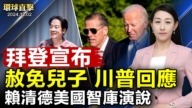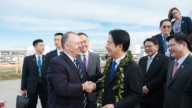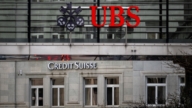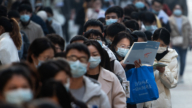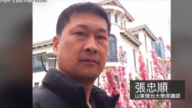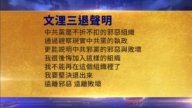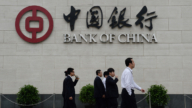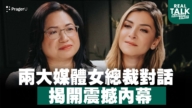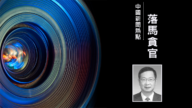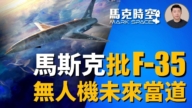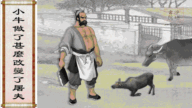【新唐人2012年1月3日讯】2012年是中共十八大领导层换届的敏感年份,中共国家主席胡锦涛发表2012年新年贺词,突出强调经济发展和改善民生。国际媒体分析了中国政治、经济、社会的八大趋势,专家学者指出,中国在新的一年里将继续面临通货膨胀、经济增长放缓,中共的首要任务将是维稳,保十八大。
胡锦涛在新年贺词中说,当前世界多极化、经济全球化深入发展,各国相互依存日益加深,但世界经济复苏的不确定性上升,世界和平与发展面临新的机遇和挑战。
胡锦涛表示,在新的一年里,中国要处理好保持经济平稳较快发展、调整经济结构、管理通胀的关系,加快推进经济发展方式转变。
原“中国经济体制改革研究所”综合研究室主任程晓农对此作了深层分析。
程晓农:“胡锦涛确实承认了两点:第一是国际形势复杂多变,第二点就是国内面临种种压力和困难。2011年是中国经济大转折的一个年份,就是中国经济从表面上的繁荣,开始转向越来越大的困难;与此同时,明确的表示放弃了所谓‘中国崛起’这个说法。”
国务院发展研究中心“宏观经济研究部”主任余斌在岁末指出,中国经济的高速发展期结束,2012年中国的经济增长还会进一步下降。他同时提醒中国民众“加大对通货膨胀的容忍度”。
“纽约城市大学”经济学教授陈志飞表示,在外贸下滑、内需不足的状况下,中国经济有“硬着陆”的风险。
陈志飞:“如果还是用货币的宽松政策来带动经济发展,那么新一轮的恶性循环在房地产、在其他领域的这种泡沫经济行为又会再现。那个时候,最影响民生的通货膨胀又会死灰复燃,从这点来看,对老百姓来说,也确实是雪上加霜。”
2012年中共将召开十八大,被当局称为“具有特殊重要意义的一年”。而频频发生的群体性事件、中小企业的经营困难、地方政府债务和金融潜在风险等等,都对当局维稳形成巨大的挑战。
程晓农:“我相信十八大解决不了中国的问题,十八大只不过是把他们已经确定好的权力,安排给一个新的、年轻一些的班底,结果呢,所有的问题一切照旧。”
元旦前夕,英国《金融时报》发表中国《财经》杂志主笔马国川的文章,分析了影响甚至决定中国未来走向的八大趋势。
其中包括:政府权力越来越大;司法改革偏离正途;经济增长方式难以转变;利益集团不断坐大;腐败愈演愈烈;思想争论激烈;社会不满累积,群体性事件频发;外部世界不确定性增强。
程晓农:“那么在一个经济越来越困难的局势下,中国政府的政治压力也会不断增加。在这种情况下,实际上现在的政治体制和执政能力,已经不太适应解决这些问题了,实际上这些问题也不可能在现在的制度框架内得到根本解决。”
《金融时报》发表“中国改革下一步怎么走?”文章,“复旦大学”经济学院教授韦森表示,从中国经济的基本面来看,未来出口、投资和居民消费都动力不足,困难还会接踵而来。这逼迫着中国进行经济和社会改革,尤其是政治体制的改革。
新唐人记者常春、李元翰、柏妮采访报导。
2012 – A Sensitive Year for CCP to Secure China’s Economy
The Chinese Communist Party (CCP) makes leadership
changes in 2012 when economic focus makes this sensitive
CCP President Hu Jintao highlighted developing the economy
and improving peoples’ livelihood in 2012 New Year speech.
International media analyzes eight trends for China’s politics,
economy, society. Experts say China will have more inflation.
They expect economic slowdown and the CCP regime’s top
priority is to maintain stability and secure its 18th Congress.
Hu Jintao said that today’s world multi-polarization and
economic globalization increased global interdependence.
Deepening uncertainty of world economic recovery means
peace and development face new threats and challenges.
Hu said that China will strike a balance between maintaining
steady and relatively fast economic growth.
By adjusting its economic structures and managing inflation,
China will accelerate its’ economic development mode.
Cheng Xiaonong, former Integrated Research Office Director
at China’s Economy Reform Institute, analyzes Hu’s speech.
Cheng Xiaonong: “Hu Jintao did recognize two points:
Firstly, the complicated and changeable international situation.
Secondly, the varied domestic pressures and difficulties.
The year of 2011 was a big turning point for China.
China’s economy diverted into an increasingly difficult plight
from its previous apparent prosperity.
And the regime has clearly abandoned the term of
“China’s rising".
Yu Bin, Macroeconomic Research Department Director at
State Council Development Research Center recently said
that the era of rapid economic development ended in China.
In 2012, the country’s economic growth will decline further.
Yu warned the Chinese people to “increase tolerances for
inflation."
Chen Zhifei, Professor of Economics at City University, New
York, says export slippage and weak domestic demand puts China’s economy at risk of a “hard landing”.
Chen Zhifei: “If the easing monetary policy is still used to stir
the economy a new round of vicious cycles will take place.
The bubble in real estate and other areas will reproduce.
reviving inflation that most affects peoples’ livelihoods.
In this sense, ordinary people’s lives will be worse. “
The CCP 18th Congress will be held in 2012 called “a year of
special significance" by the regime.
However, mass protests, operation and business failures of
SME’s along with local authority debts and financial risks
are frequently occurring, forming a tremendous challenge for
the CCP regime’s maintenance of stability.
Cheng Xiaonong: “I think that CCP’s 18th Congress cannot
solve China’s problems. They just transfer established power.
This goes to a new and younger leadership. So, the result is
that nothing will change."
UK’s Financial Time published an article on New Year’s Eve
by author, Ma Guochuan, editor of China’s Caijing magazine.
The article analyzes eight major trends that may influence and
even determine the future direction of China.
The trends include:
grown-up power with the authorities;
intensified corruption judicial reform deviating from the right path;
difficult transformation of economic growth mode;
constantly expanding interest groups;
high intensity thought debate; social discontent accumulating;
frequent occurrences of mass protests and uncertainty of the
outside world increasing.
Cheng Xiaonong: “With the increasingly difficult economic
situation, political pressure on China’s government will grow.
In this case, current political institutions and governance
capacity cannot help solve these problems in reality.”
Financial Times published an article, entitled
“What’s the next step for China’s reform?"
Wei Sen, Professor of Economics at Fudan University, said
China’s exports, investment and consumption face weak
driving forces in the future, and more difficulties
will follow one after another.
This will force China to carry out economic and social
reform, especially the reform of the political system.
NTD reporter Chang Chun, Li Yuanhan and Bo Ni


